
Kenjeran: Coastal Charm and Cultural Richness in Surabaya
Nestled on the eastern coast of Surabaya, Kenjeran is a hidden gem that offers a unique blend of natural beauty and cultural heritage. This seaside neighborhood is a serene escape from the bustling city center, providing picturesque views of the Java Sea and a peaceful environment to unwind. One of the main attractions in Kenjeran is the Kenjeran Beach, a popular spot for both locals and tourists. The beach is perfect for leisurely strolls, picnics, and enjoying stunning sunsets. For those interested in water activities, you can engage in boat rides and fishing. Nearby, you will find the Kenjeran Park, which features various recreational facilities, including a water park, playgrounds, and food stalls serving delicious local snacks. Kenjeran is also home to the beautiful Sanggar Agung Temple, a unique blend of Chinese and Javanese architecture. The temple is an important pilgrimage site and a must-visit for those interested in local culture and spirituality. Another notable landmark is the Atlantis Land, a theme park that offers fun and excitement for families with its thrilling rides and attractions. Exploring Kenjeran's local markets is a delightful experience. The vibrant Kenjeran Fish Market is a great place to witness daily life and sample fresh seafood. Don't miss the chance to try the famous local dish, 'Lontong Balap,' a savory rice cake dish that is a culinary highlight of Surabaya.
Local tips in Kenjeran
- Visit Kenjeran Beach early in the morning or late afternoon to avoid the midday heat and enjoy the best views.
- Wear comfortable footwear as you explore the beach and local markets.
- Try local seafood at the Kenjeran Fish Market for an authentic culinary experience.
- Bring a camera to capture the scenic beauty of the Sanggar Agung Temple and Kenjeran Beach.
- Check the opening hours of Atlantis Land if planning a visit, especially during weekdays.
Kenjeran: Coastal Charm and Cultural Richness in Surabaya
Nestled on the eastern coast of Surabaya, Kenjeran is a hidden gem that offers a unique blend of natural beauty and cultural heritage. This seaside neighborhood is a serene escape from the bustling city center, providing picturesque views of the Java Sea and a peaceful environment to unwind. One of the main attractions in Kenjeran is the Kenjeran Beach, a popular spot for both locals and tourists. The beach is perfect for leisurely strolls, picnics, and enjoying stunning sunsets. For those interested in water activities, you can engage in boat rides and fishing. Nearby, you will find the Kenjeran Park, which features various recreational facilities, including a water park, playgrounds, and food stalls serving delicious local snacks. Kenjeran is also home to the beautiful Sanggar Agung Temple, a unique blend of Chinese and Javanese architecture. The temple is an important pilgrimage site and a must-visit for those interested in local culture and spirituality. Another notable landmark is the Atlantis Land, a theme park that offers fun and excitement for families with its thrilling rides and attractions. Exploring Kenjeran's local markets is a delightful experience. The vibrant Kenjeran Fish Market is a great place to witness daily life and sample fresh seafood. Don't miss the chance to try the famous local dish, 'Lontong Balap,' a savory rice cake dish that is a culinary highlight of Surabaya.
Iconic landmarks you can’t miss
Suroboyo Park
Explore Suroboyo Park, a vibrant city park in Surabaya, where lush gardens meet thrilling attractions and stunning coastal views.
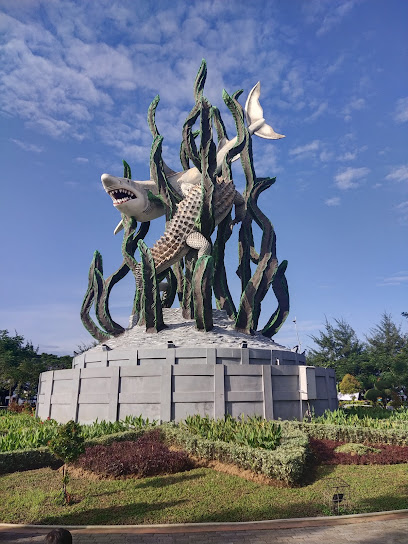
Pantai Kenjeran Lama
Discover the beauty of Pantai Kenjeran Lama in Surabaya, East Java – a serene beach destination with vibrant culture and stunning coastal views.
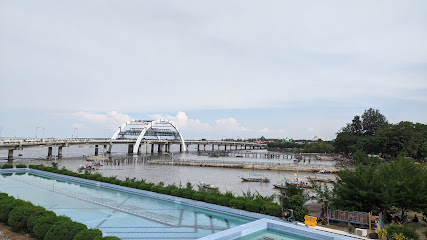
Sanggar Agung Temple
Discover the spiritual and cultural richness of Sanggar Agung Temple, a breathtaking Taoist temple in Surabaya, East Java, perfect for travelers seeking tranquility.
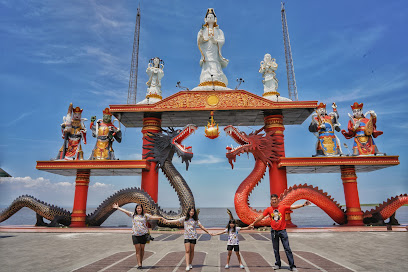
Patung Suroboyo Raksasa
Experience the cultural heart of Surabaya at Patung Suroboyo Raksasa, home to iconic sculptures and a vibrant park setting.
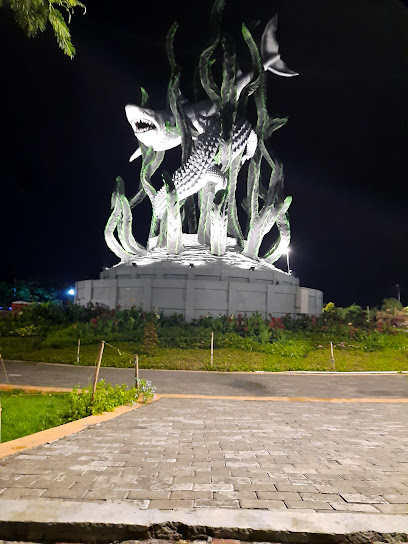
Suroboyo Bridge
Experience the breathtaking views and architectural beauty of Suroboyo Bridge, a must-visit landmark in Surabaya.
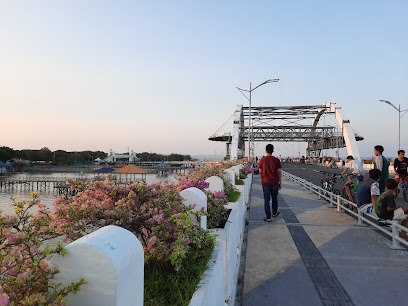
Pura Segara Kenjeran
Experience the spiritual tranquility of Pura Segara Kenjeran, a stunning Hindu temple in Surabaya with breathtaking coastal views and rich cultural significance.
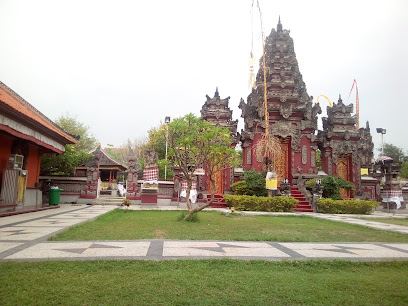
Benteng Kedung Cowek
Explore Benteng Kedung Cowek, a historical landmark in Surabaya, East Java, where rich culture and stunning views await every visitor.
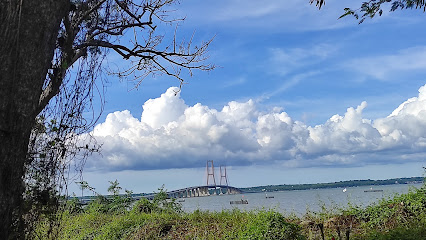
Kwan Im Goddess Statue
Discover the serene beauty and cultural significance of the Kwan Im Goddess Statue, a must-visit spiritual landmark in Surabaya, East Java.
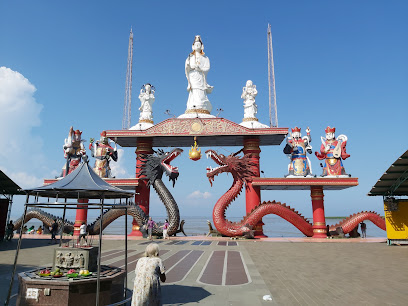
Benteng Suramadu
Explore Benteng Suramadu: A historic fortress in Surabaya offering stunning views, rich culture, and a glimpse into Indonesia's colonial past.
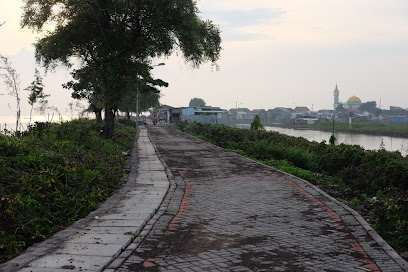
Kenjeran Beach
Discover the serene beauty of Kenjeran Beach in Surabaya, East Java—a perfect blend of relaxation, local culture, and stunning coastal views.
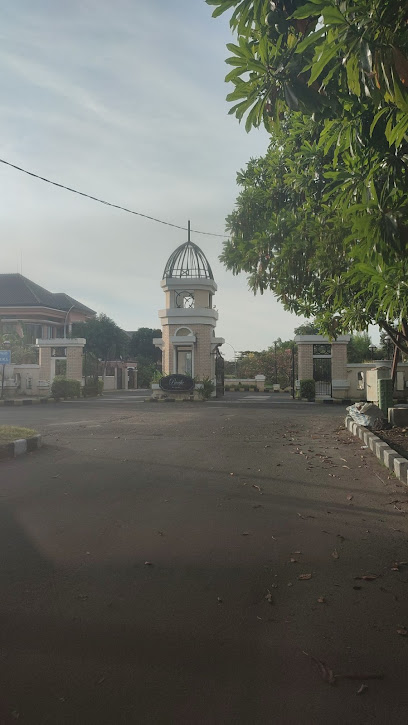
Unmissable attractions to see
Suroboyo Park
Discover the vibrant Suroboyo Park in Surabaya, where adventure meets tranquility in a family-friendly environment ideal for all ages.
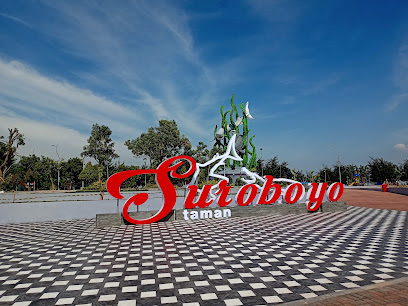
Kenjeran Park
Explore the natural beauty of Kenjeran Park, a serene ecological park in Surabaya, perfect for relaxation, family outings, and nature lovers.
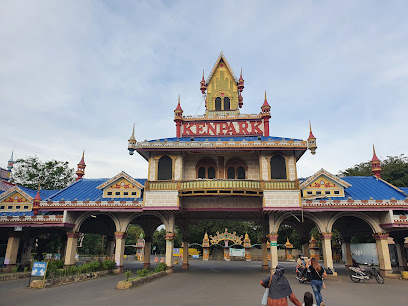
Taman Air Mancur Menari Kenjeran
Experience the vibrant musical fountain shows at Taman Air Mancur Menari Kenjeran, a captivating park in Surabaya that dazzles visitors with its enchanting displays.
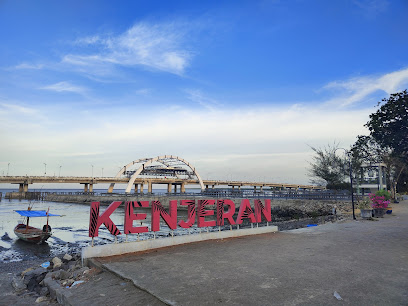
Pantai Kenjeran Lama
Experience the beauty and culture of Pantai Kenjeran Lama, a captivating beach destination in Surabaya, East Java, perfect for relaxation and adventure.
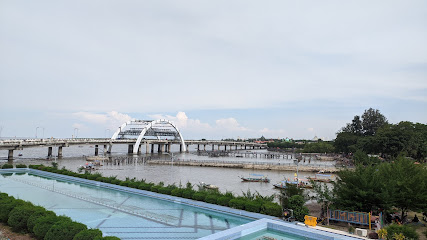
Sanggar Agung Temple
Explore the serene beauty of Sanggar Agung Temple in Surabaya, a vibrant Taoist sanctuary adorned with intricate architecture and rich cultural heritage.
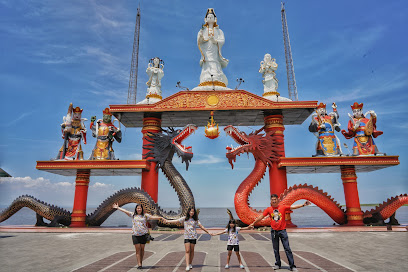
Suroboyo Bridge
Experience the beauty of Surabaya at Suroboyo Bridge, a modern architectural delight with stunning views and vibrant local culture.
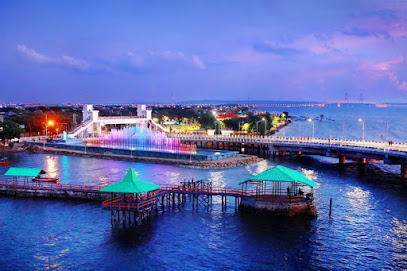
Pura Segara Kenjeran
Discover the beauty and serenity of Pura Segara Kenjeran, a captivating Hindu temple in Surabaya surrounded by lush landscapes and tranquil waters.
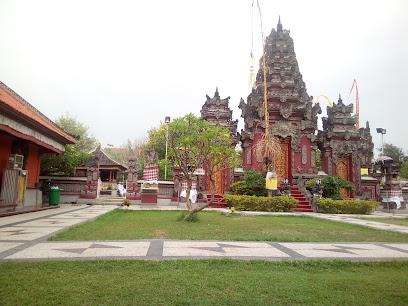
Blockbuster Museum Surabaya
Immerse yourself in the world of pop culture at the Blockbuster Museum Surabaya, where entertainment comes alive through interactive exhibits and iconic figures.
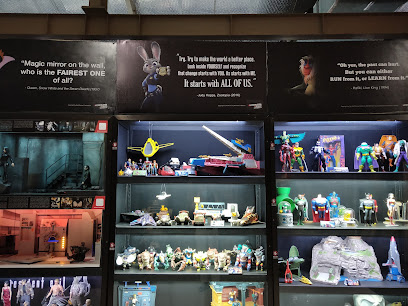
Kwan Im Goddess Statue
Discover the serenity of the Kwan Im Goddess Statue in East Java, a captivating blend of spirituality and stunning natural beauty.
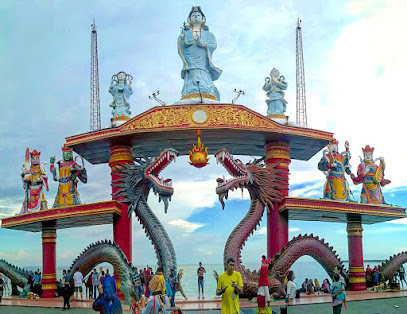
Kenjeran Beach
Discover the enchanting beauty of Kenjeran Beach in Surabaya, a perfect blend of stunning seaside views and vibrant local culture.
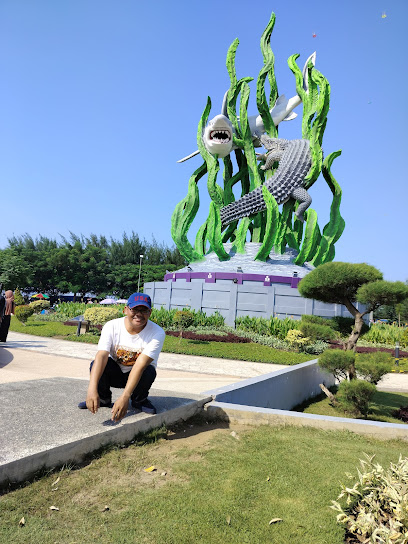
Essential places to dine
Springtimes Indian Food
Discover the exquisite fusion of Indian and Indonesian flavors at Springtimes Indian Food in Surabaya.
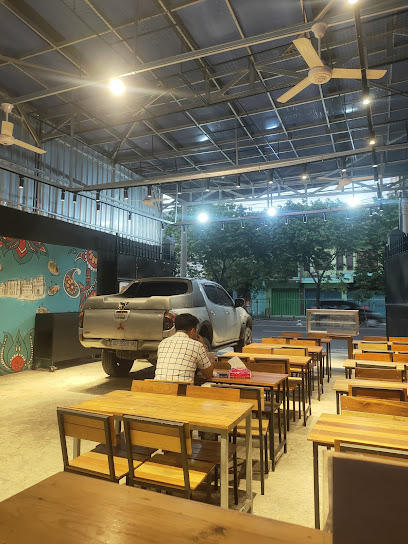
Astrid Kitchen Center
Discover the rich flavors of East Java at Astrid Kitchen Center, where culinary tradition meets modern dining in Surabaya.
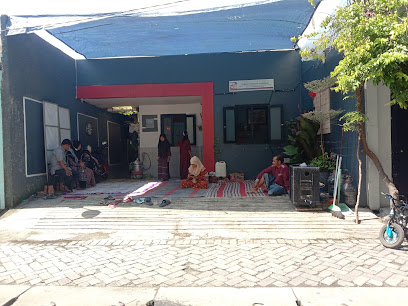
Rumah Makan
Experience authentic Padang cuisine at Rumah Makan in Surabaya – where every dish tells a story!
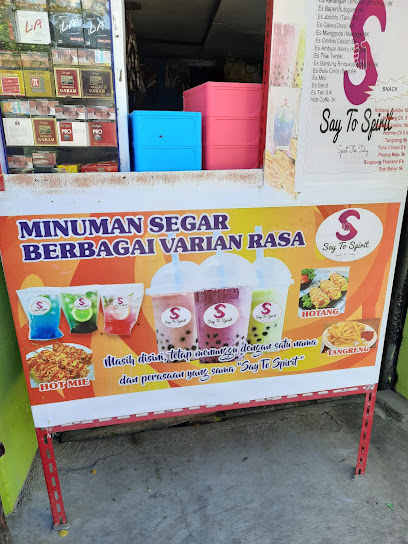
Satu Rasa Culinary
Experience authentic Indonesian cuisine at Satu Rasa Culinary in Surabaya – where every dish tells a story.

Enakabe Food
Discover authentic Indonesian flavors at Enakabe Food in Surabaya – a must-visit destination for food lovers seeking local culinary delights.
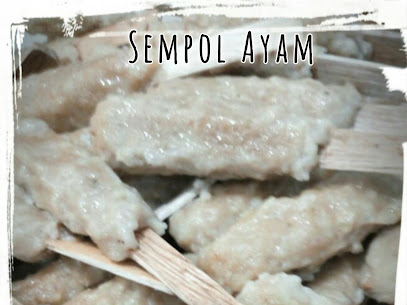
Resto Resep Bunda
Experience authentic Indonesian flavors at Resto Resep Bunda in Surabaya – where tradition meets taste in every delightful dish.
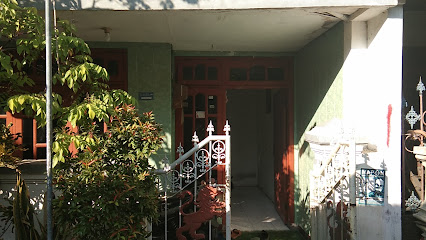
Restoran
Experience authentic Indonesian cuisine at Restoran in Surabaya – a must-visit culinary gem showcasing local flavors.
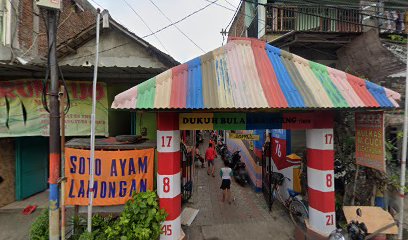
Warung Godong Gedang tempat makan bernuansa etnik Jawa Yogyakarta
Experience authentic Javanese flavors at Warung Godong Gedang in Surabaya - where tradition meets taste in every dish.

MAKANAN MAK KITTY
Experience authentic Ayam Penyet at Makanan Mak Kitty in Surabaya – where every bite tells a story of Indonesian culinary heritage.
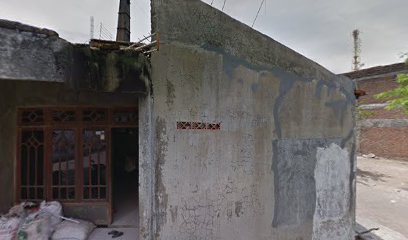
Danish crispy
Experience the authentic taste of East Java at Danish Crispy, where crispy delights meet a warm dining atmosphere in Surabaya.
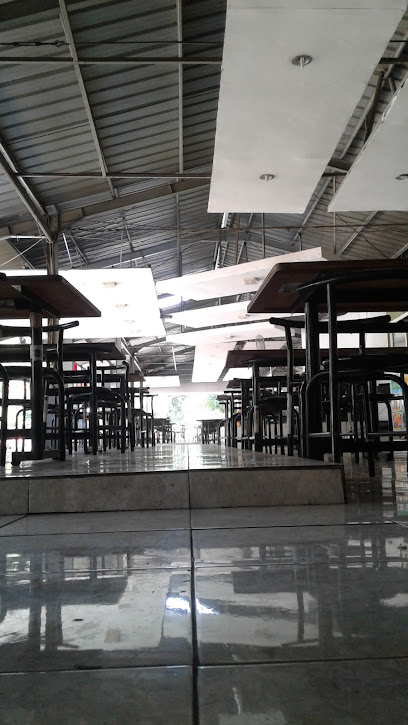
Markets, malls and hidden boutiques
Kenjeran Spezial
Discover stylish outerwear at Kenjeran Spezial, a top clothing store in Surabaya, blending local culture with contemporary fashion.
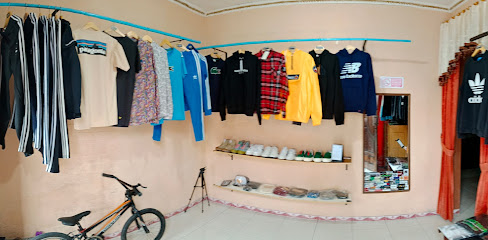
Unique Acc
Explore Unique Acc in Surabaya - A treasure trove of antiques featuring rare collectibles, vintage furniture, and unique artifacts that tell stories of the past.
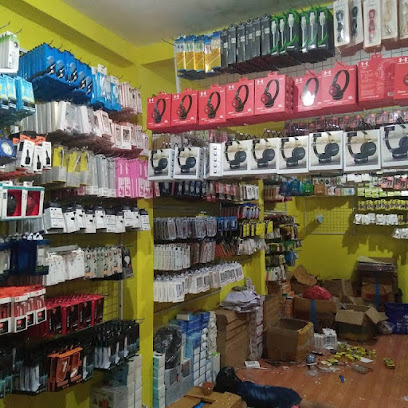
Tenang Shop Surabaya
Explore Tenang Shop Surabaya, a vibrant shopping mall offering a unique blend of local culture and modern retail experiences in East Java.
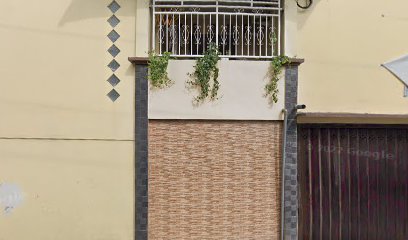
Beautiful Now Store
Explore Beautiful Now Store in Surabaya for unique bags and stylish accessories, reflecting the essence of East Java's vibrant fashion scene.
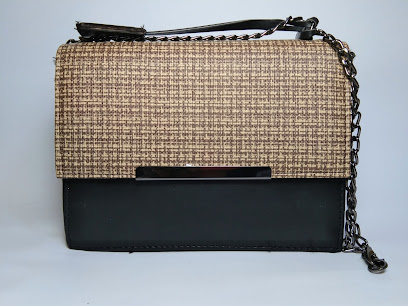
fadilstore
Explore Fadilstore in Surabaya for a unique shopping experience filled with local culture and diverse retail options.

QN-SHOP
Explore QN-SHOP, Surabaya's vibrant shopping mall, where local culture meets modern retail for an unforgettable experience.
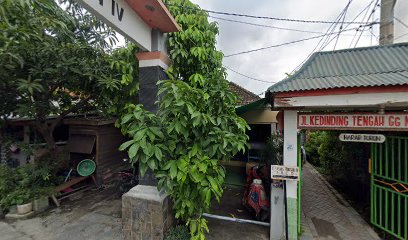
Toko Bella Shop
Experience the vibrant shopping scene at Toko Bella Shop in Surabaya, where local crafts and delicious cuisine await every visitor.
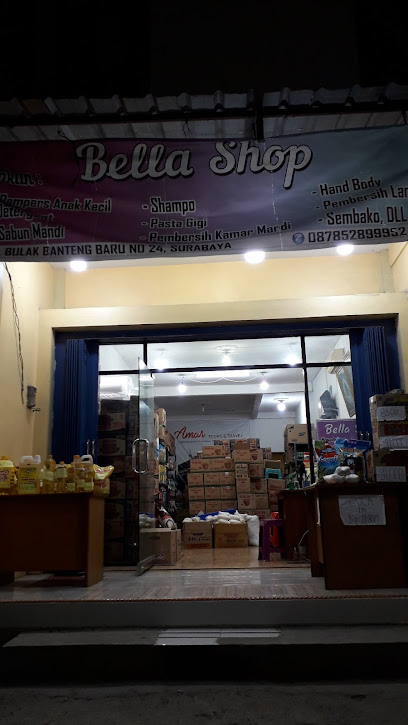
You.buy.id store
Explore You.buy.id Store in Surabaya for a unique shopping experience blending local culture with contemporary retail, perfect for every traveler.
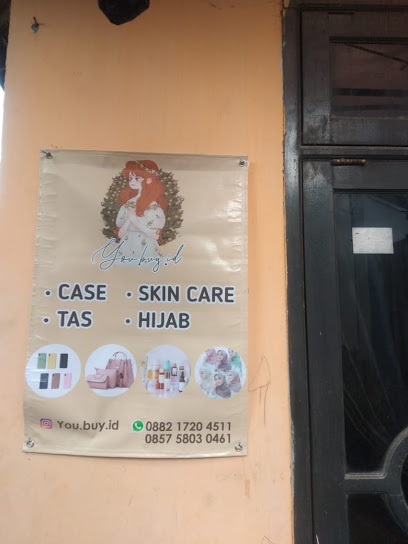
Gallerysurabayaa
Explore Gallery Surabaya: An exceptional shopping experience blending local culture with modern retail in the heart of East Java.
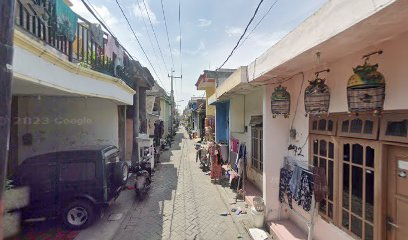
Egi's Shop
Discover unique fashion finds and local flair at Egi's Shop, a clothing store that offers an unforgettable shopping experience.
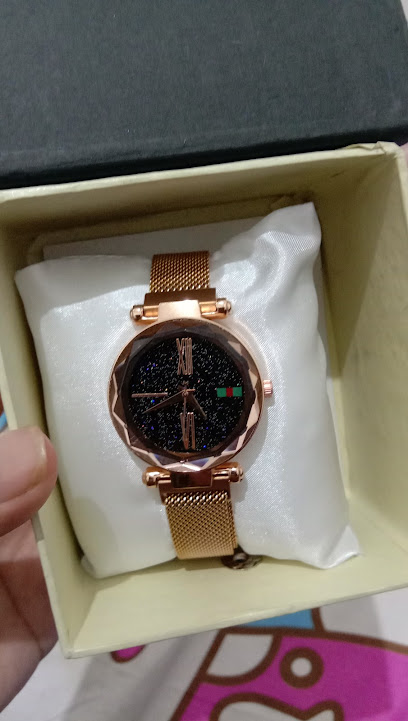
Essential bars & hidden hideouts
Our Bar
Discover the lively ambiance of Our Bar in Surabaya, the perfect spot for grilled delights and live music entertainment.
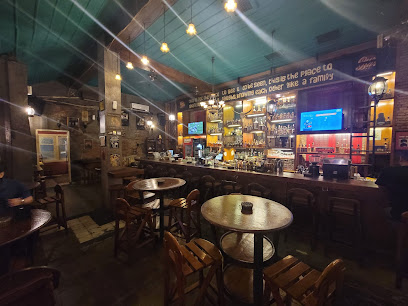
CAMDEN - Kertajaya Indah
Experience the ultimate nightlife at Camden - Kertajaya Indah, Surabaya's top bar for cocktails, live music, and unforgettable moments.
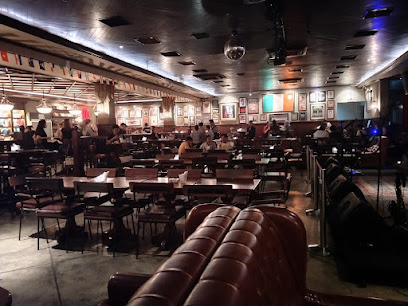
COLORS PUB & RESTAURANT
Experience the vibrant atmosphere of Colors Pub & Restaurant in Surabaya, where delicious food meets live music in a colorful setting.
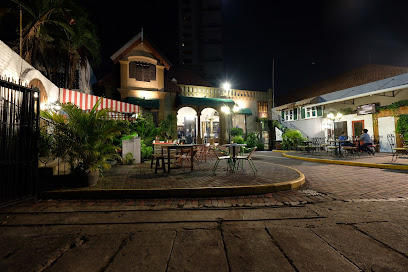
Breakshot
Experience the vibrant nightlife at Breakshot, Surabaya's premier karaoke bar offering entertainment, drinks, and unforgettable memories.

Skycave Bar & Lounge
Experience the vibrant nightlife at Skycave Bar & Lounge in Surabaya, featuring live music, delicious drinks, and an inviting atmosphere.
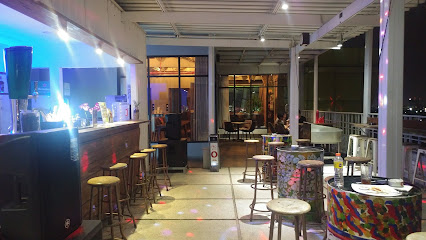
Phoenix Club Surabaya
Discover the electrifying nightlife at Phoenix Club Surabaya, a premier bar and nightclub offering unforgettable experiences in East Java.
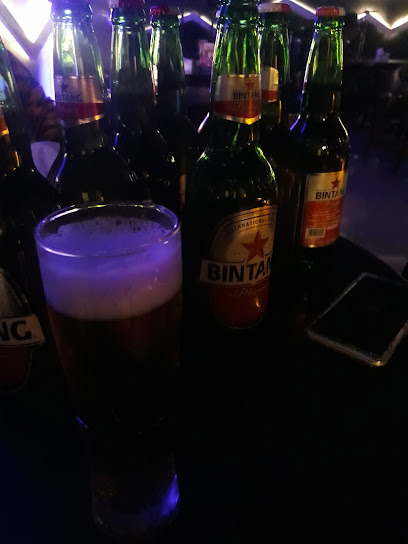
Es Degan Pak Kardi
Experience the vibrant nightlife at Es Degan Pak Kardi, a bar in Surabaya offering refreshing drinks and a warm atmosphere for tourists and locals alike.
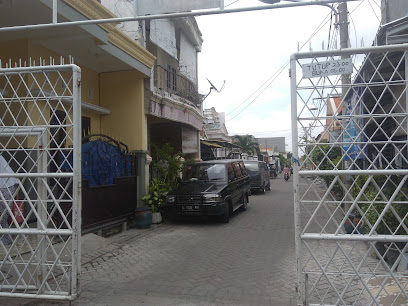
RMM Angkringan dan Shisha
Discover the lively ambiance and authentic flavors at RMM Angkringan dan Shisha, a must-visit bar in Surabaya for a unique local experience.
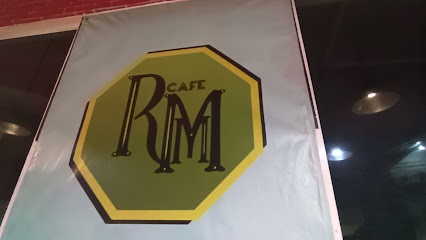
KAMPUNG HOOLIGAS
Discover the vibrant nightlife at Kampung Hooligas, Surabaya's premier bar offering a mix of local charm and global flavors.
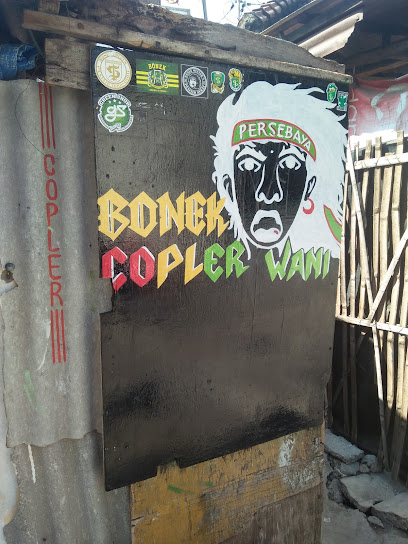
Pub Top Restaurant
Experience the culinary delights of Pub Top Restaurant in Surabaya, where traditional flavors and modern cuisine meet in a vibrant atmosphere.

Local Phrases
-
- HelloHalo
[ha-loh] - GoodbyeSelamat tinggal
[se-la-mat ting-gal] - YesIya
[ee-ya] - NoTidak
[tee-dak] - Please/You're welcomeSilakan
[si-la-kan] - Thank youTerima kasih
[te-ree-ma ka-see] - Excuse me/SorryMaaf
[ma-af] - How are you?Apa kabar?
[a-pa ka-bar] - Fine. And you?Baik. Dan kamu?
[bai-k. dan ka-mu] - Do you speak English?Apakah kamu bisa berbicara bahasa Inggris?
[a-pa-kah ka-mu bi-sa ber-bi-tsa ba-ha-sa Ing-gris] - I don't understandSaya tidak mengerti
[sa-ya tee-dak meng-er-tee]
- HelloHalo
-
- I'd like to see the menu, pleaseSaya ingin melihat menu, tolong
[sa-ya in-gin me-li-hat me-nu, to-long] - I don't eat meatSaya tidak makan daging
[sa-ya tee-dak ma-kan da-ying] - Cheers!Selamat minum!
[se-la-mat mi-num] - I would like to pay, pleaseSaya ingin membayar, tolong
[sa-ya in-gin mem-ba-yar, to-long]
- I'd like to see the menu, pleaseSaya ingin melihat menu, tolong
-
- Help!Tolong!
[to-long] - Go away!Pergi!
[per-gi] - Call the Police!Panggil polisi!
[pang-gil po-li-si] - Call a doctor!Panggil dokter!
[pang-gil dok-ter] - I'm lostSaya tersesat
[sa-ya ter-se-sat] - I'm illSaya sakit
[sa-ya sa-kit]
- Help!Tolong!
-
- I'd like to buy...Saya ingin membeli...
[sa-ya in-gin mem-be-li] - I'm just lookingSaya hanya melihat-lihat
[sa-ya hun-ya me-li-hat-li-hat] - How much is it?Berapa harganya?
[be-ra-pa har-ga-nya] - That's too expensiveItu terlalu mahal
[i-tu ter-la-lu ma-hal] - Can you lower the price?Bisakah kamu menurunkan harganya?
[bi-sa-kah ka-mu me-nu-run-kan har-ga-nya]
- I'd like to buy...Saya ingin membeli...
-
- What time is it?Sekarang jam berapa?
[se-ka-rang jam be-ra-pa] - It's one o'clockSekarang pukul satu
[se-ka-rang pu-kul sa-tu] - Half past (10)Setengah (sepuluh)
[se-ten-gah (se-pu-luh)] - MorningPagi
[pa-gi] - AfternoonSore
[so-re] - EveningMalam
[ma-lam] - YesterdayKemarin
[ke-ma-rin] - TodayHari ini
[ha-ri i-ni] - TomorrowBesok
[be-sok] - 1Satu
[sa-tu] - 2Dua
[du-a] - 3Tiga
[ti-ga] - 4Empat
[em-pat] - 5Lima
[li-ma] - 6Enam
[e-nam] - 7Tujuh
[tu-juh] - 8Delapan
[de-la-pan] - 9Sembilan
[sem-bi-lan] - 10Sepuluh
[se-pu-luh]
- What time is it?Sekarang jam berapa?
-
- Where's a/the...?Dimana ada...
[di-ma-na a-da] - What's the address?Alamatnya apa?
[a-la-mat-nya a-pa] - Can you show me (on the map)?Bisa tunjukkan saya (pada peta)?
[bi-sa tun-juk-kan sa-ya (pa-da pe-ta)] - When's the next (bus)?Kapan yang berikutnya (bis)?
[ka-pan yang be-ru-ku-tnya (bis)] - A ticket (to ....)Tiket (ke ....)
[ti-ket (ke ....)]
- Where's a/the...?Dimana ada...
History of Kenjeran
-
Kenjeran, located on the eastern coast of Surabaya, has a history that dates back to the early days of the city's development. Originally a fishing village, it became an important area for trade due to its strategic location along the Java Sea. The neighborhood was known for its rich marine resources, which attracted traders and settlers from various cultures, including the Javanese, Chinese, and Arab merchants.
-
During the Dutch colonial period in the 18th and 19th centuries, Kenjeran underwent significant transformations. The Dutch established ports and trading posts, which facilitated commerce in the region. The area became a focal point for the export of agricultural products and fishery, contributing to Surabaya's economic growth. Kenjeran's landscape began to change with the construction of infrastructure that catered to both local residents and European settlers.
-
The Japanese occupation of Indonesia during World War II had a profound impact on Kenjeran. The Japanese military used the area for strategic purposes, including the establishment of military posts. After the war, Kenjeran played a role in the Indonesian struggle for independence, with local residents contributing to the efforts against colonial powers. The post-war period saw a resurgence of local culture and a focus on rebuilding the community.
-
Today, Kenjeran is known for its cultural diversity and attractions, including the Kenjeran Beach and the Surabaya Ocean Park. The area reflects a blend of traditions, with local festivals showcasing Javanese culture, such as traditional dance and music performances. Kenjeran also features significant landmarks like the Cheng Hoo Mosque, which highlights the Chinese Muslim heritage of the area, and the iconic Kenjeran Bridge, symbolizing the neighborhood's evolution into a modern tourist destination.
-
In recent years, Kenjeran has seen rapid urbanization and development as part of Surabaya's broader growth. Infrastructure improvements, such as better roads and public facilities, have transformed the area into a popular destination for both locals and tourists. However, this growth has also raised concerns about preserving the cultural heritage and environment of Kenjeran, prompting initiatives aimed at sustainable tourism and community engagement.
Kenjeran Essentials
-
Kenjeran is located approximately 6 kilometers from the city center of Surabaya. The easiest way to reach Kenjeran is by taking a taxi or a ride-sharing service like Gojek or Grab, which are widely available in Surabaya. Public buses also operate from various neighborhoods, including the city center, with routes to Kenjeran. For a more adventurous option, you can rent a motorbike, but be sure to have the necessary documentation and experience in riding in Indonesian traffic.
-
Kenjeran is primarily a coastal area, and while many attractions are within walking distance, you can also rent bicycles for a more leisurely exploration. Local public transportation, such as angkots (shared minibuses), operates throughout Kenjeran and is an inexpensive way to navigate the area. For longer distances, taxis and ride-sharing services are recommended. Be prepared for traffic, especially during peak hours.
-
Kenjeran is generally safe for tourists, but standard precautions should be taken. Avoid walking alone at night, especially along secluded beach areas. Petty crime, such as pickpocketing, can occur in crowded places, so keep your belongings secure. Areas near the waterfront can be less illuminated at night, so proceed with caution. It's advisable to stay away from isolated beaches after dark.
-
In case of an emergency, dial 112 for police, fire, or medical assistance. There are local clinics available in Kenjeran, and larger hospitals can be found in central Surabaya. It is highly recommended to have travel insurance that covers health emergencies. For minor health issues, there are pharmacies in the area where you can purchase over-the-counter medications.
-
Fashion: Do dress modestly, especially when visiting religious sites or local markets. Avoid wearing revealing clothing. Religion: Do respect local customs and practices, particularly in areas with temples or mosques. Public Transport: Do give up your seat for the elderly or disabled. Don't eat or drink on public transport. Greetings: Do greet locals with a smile and a nod; a handshake is also common among men. Eating & Drinking: Do try local seafood delicacies and accept food offerings graciously. Don't refuse hospitality as it may be seen as rude.
-
To experience Kenjeran like a local, explore the vibrant seafood markets, especially during the early morning hours. Engage with fishermen and vendors, as they are often keen to share their stories. Visit the Kenjeran Park and the nearby Suramadu Bridge for stunning views, especially at sunset. Try to sample street food from local vendors, but ensure that the food looks fresh and is prepared in front of you. Don’t miss out on the local cultural events and festivals if your visit coincides with them.
Nearby Cities to Kenjeran
-
Things To Do in Semarang
-
Things To Do in Yogyakarta
-
Things To Do in Bali
-
Things To Do in Bandung
-
Things To Do in Jakarta
-
Things To Do in Makassar
-
Things To Do in Balikpapan
-
Things To Do in Settlement
-
Things To Do in Poon Saan
-
Things To Do in Flying Fish Cove
-
Things To Do in Drumsite
-
Things To Do in Greta Beach
-
Things To Do in Kuching
-
Things To Do in Miri
-
Things To Do in Kuala Belait








